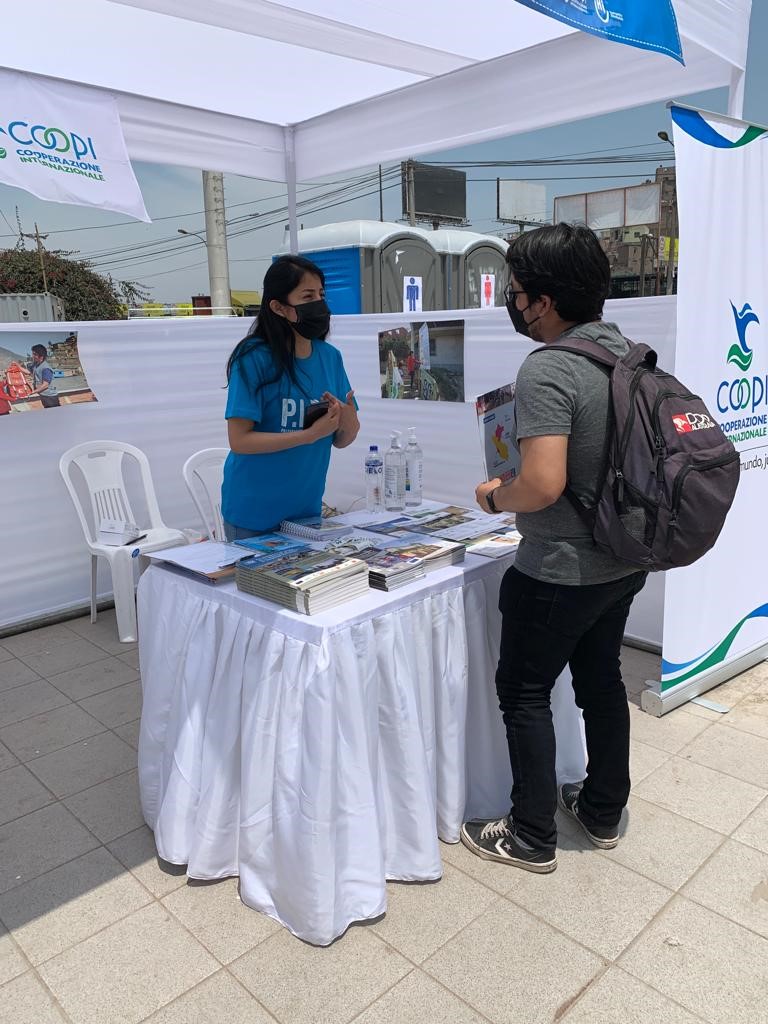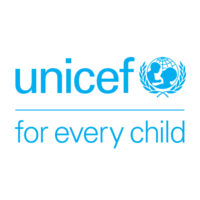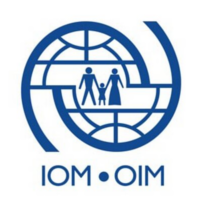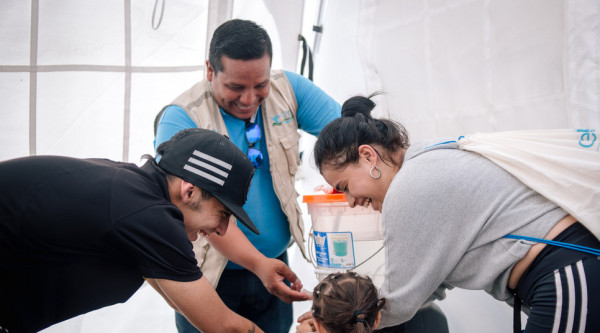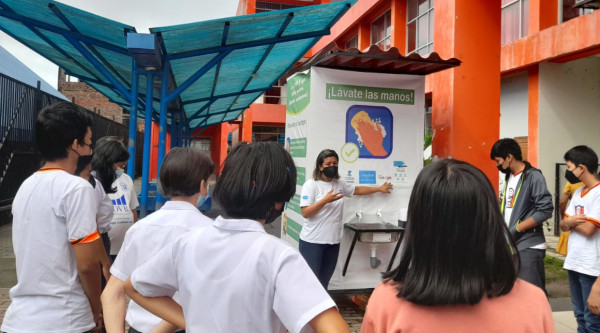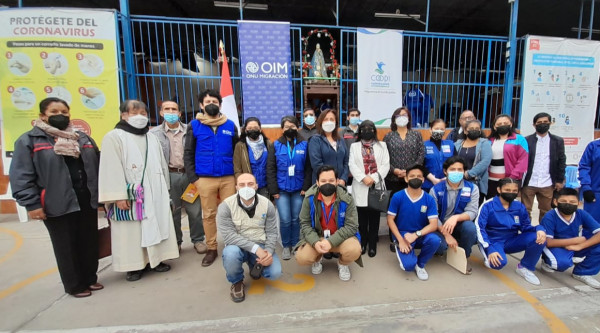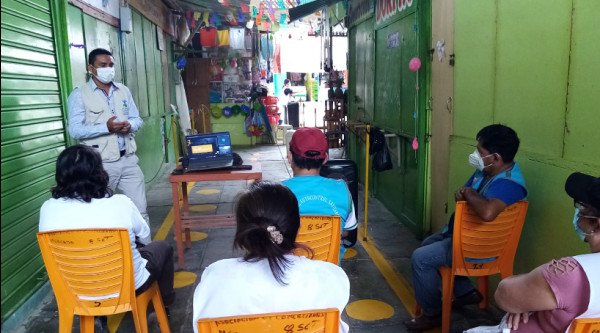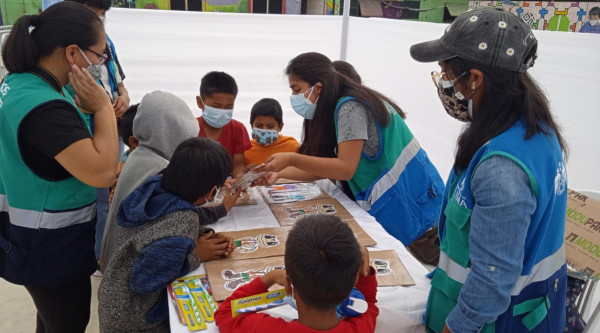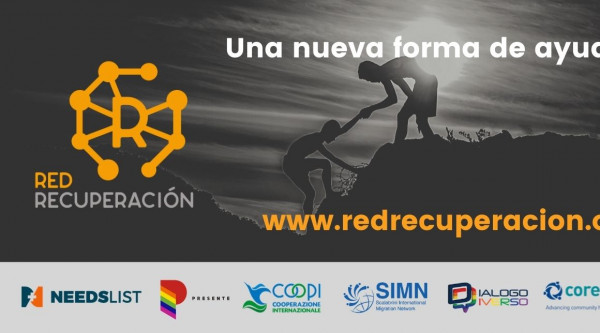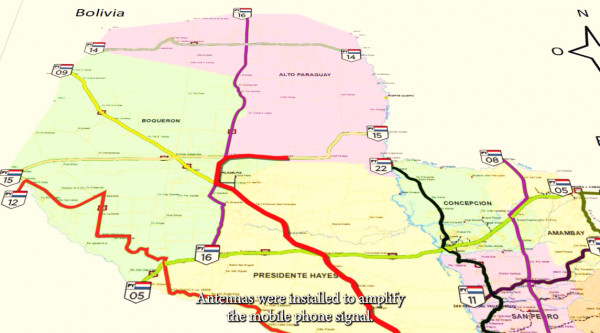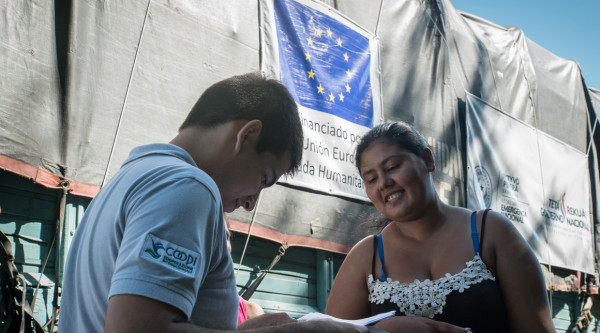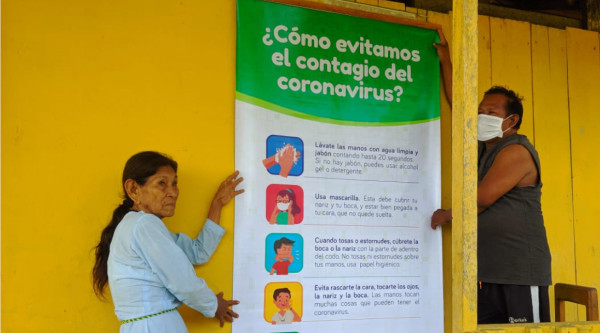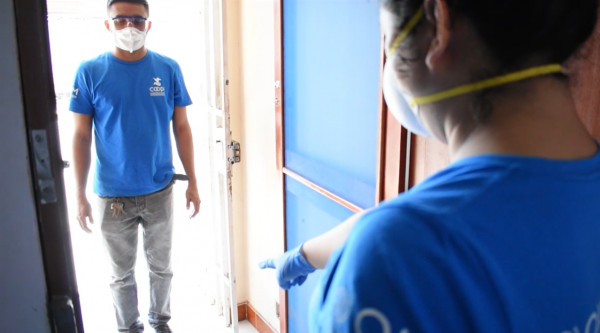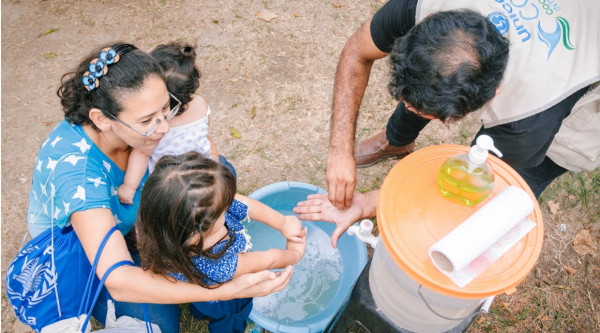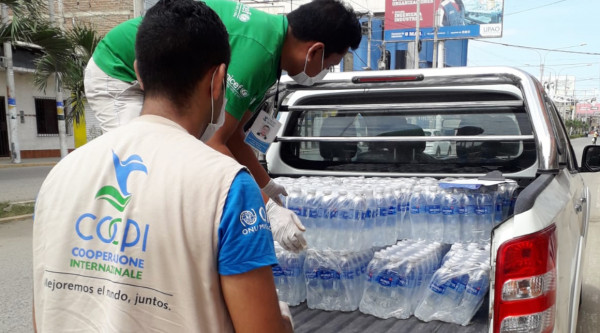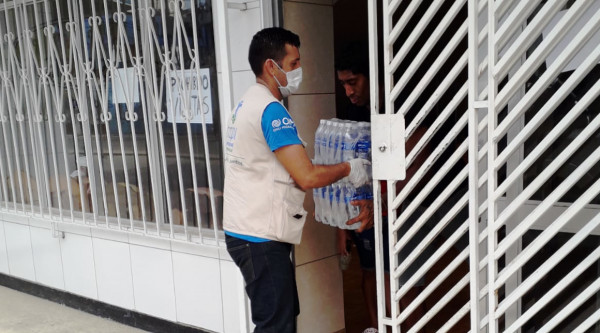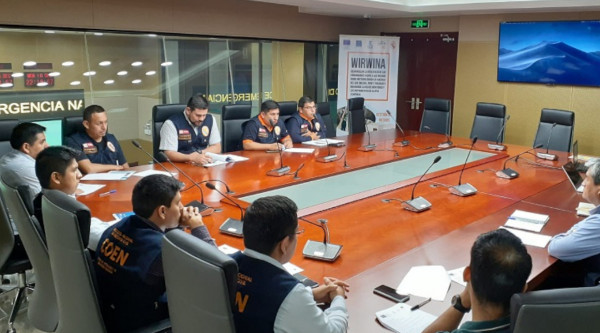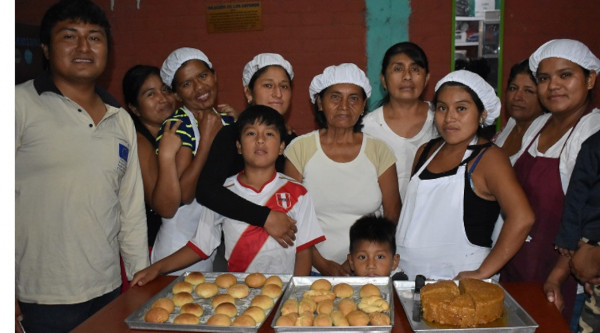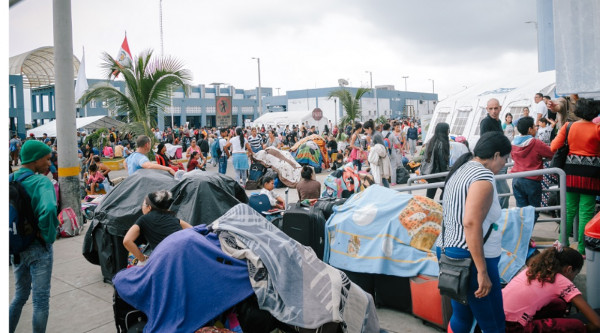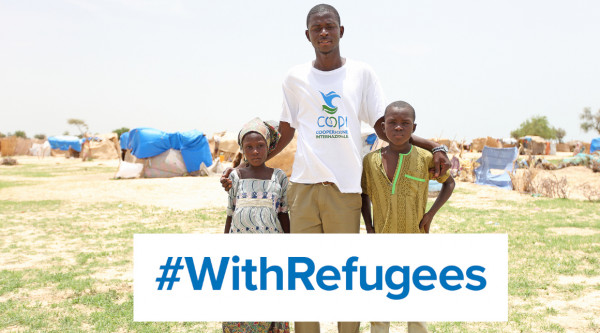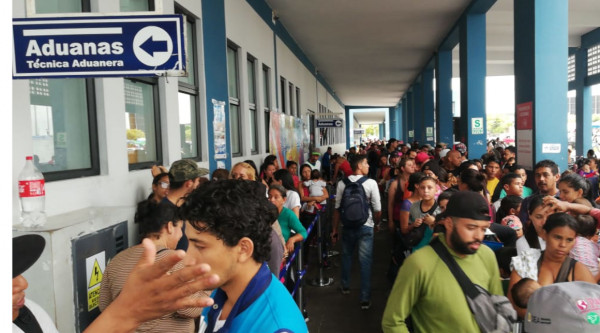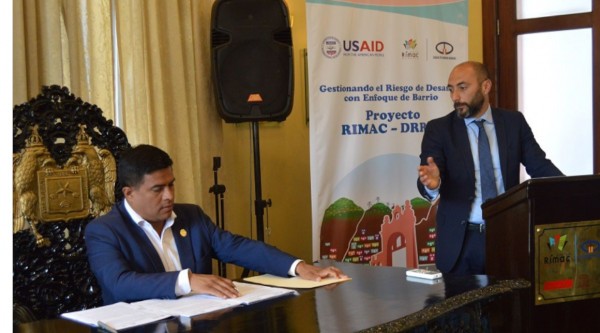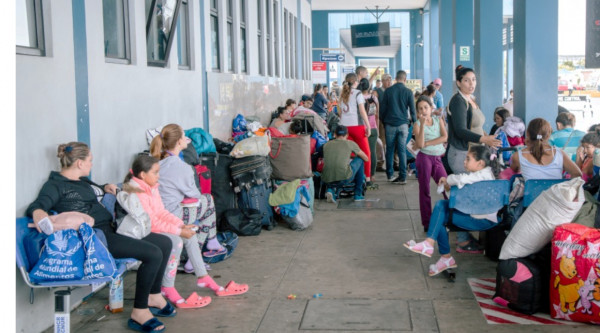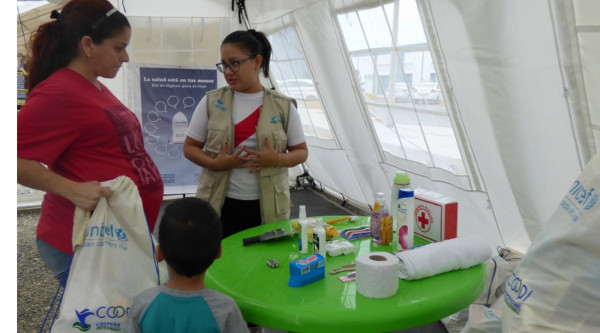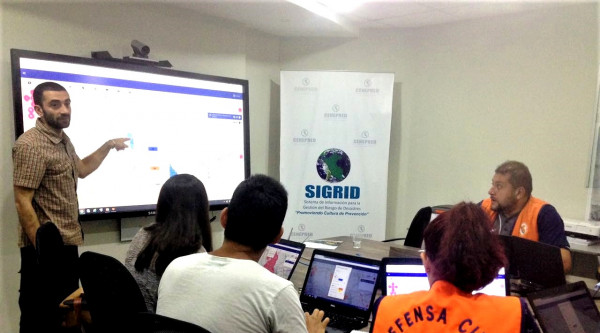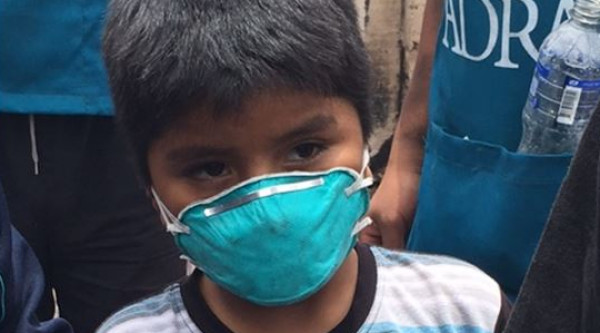COOPI presence in Peru
Since 2001, COOPI has been working to strengthen the capacity of Peruvian society to cope with disasters by promoting resilience in the social fabric through improved community preparedness and risk management based on strong synergies with local governments and urban and rural communities. As of 2018, the country is heavily impacted by the Venezuelan humanitarian crisis that has resulted in the displacement of more than 1,500,000 highly vulnerable people to Peru. The negative impact on the territory's economy, already structurally fragile, is very significant and has been further aggravated in recent years by the health crisis due to the COVID-19 pandemic. In this context of severe humanitarian emergency COOPI has supported and continues to support both the migrant and refugee population and host communities with initiatives to improve access to water and sanitation at WASH points on the migration route and in educational and health facilities nationwide. In addition, COOPI carries out activities to prevent the spread of diseases and epidemics in emergency settings, as well as protection interventions aimed especially at the most fragile individuals, such as women, the elderly, and children, and involving not only mechanisms for deriving critical cases but also initiatives to strengthen the work capacity of migrant people for better social and economic integration.
COOPI in Peru today
COOPI in Peru develops integrated multisectoral programs and promotes the strengthening of the resilience of urban and rural communities, working within a framework that links humanitarian response to rehabilitation and development. COOPI intervenes in synergy with U.N. agencies, public instances and local actors, within the framework of the management of the Venezuelan humanitarian crisis, with humanitarian assistance initiatives related mainly to Protection and access to water and sanitation, and with projects to protect the environment and reduce the risks of natural and man-made disasters in the areas most affected by periodic emergencies such as the Lima region, the north (Piura and Tumbes regions) and the Amazon zone (Loreto and Ucayali regions) of the country. COOPI's work in Peru has always been characterized by the promotion of respect for human rights, inclusive and participatory governance, transparency (Accountability to Affected Populations - APP) towards the participating population and authorities, and the promotion of empowerment of local organizations, supporting groups suffering specific situations of vulnerability such as indigenous peoples, peasants, migrants, asylum seekers and refugees, with priority of assistance to women and children.









